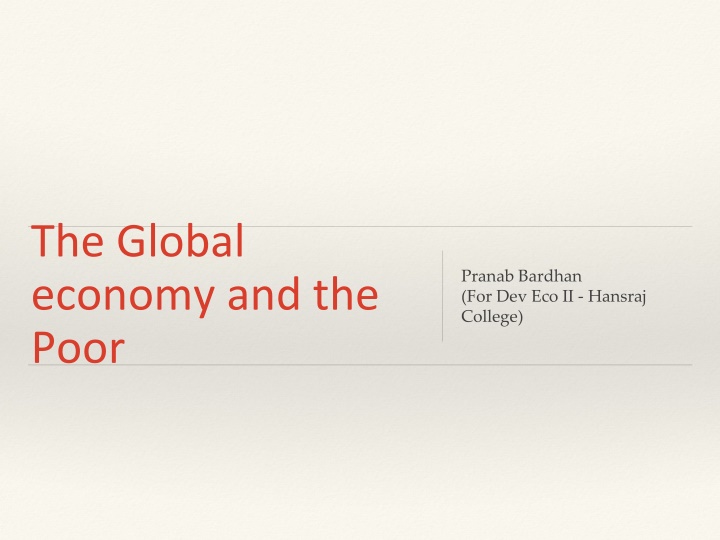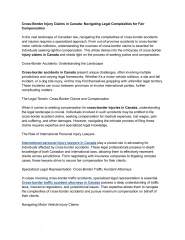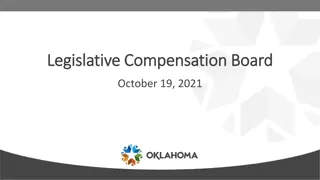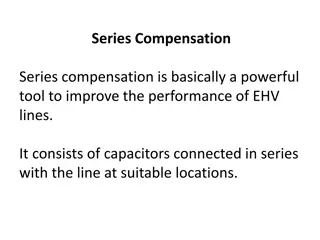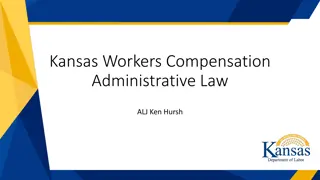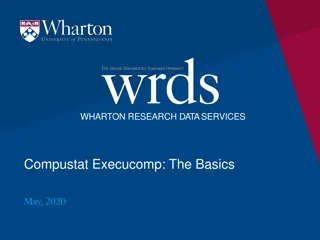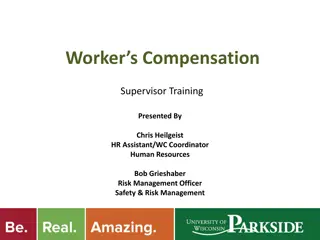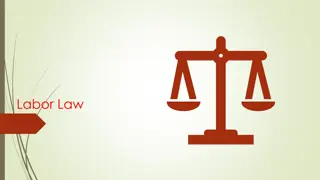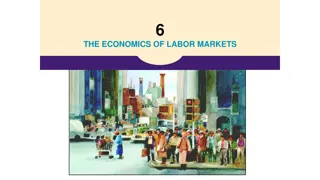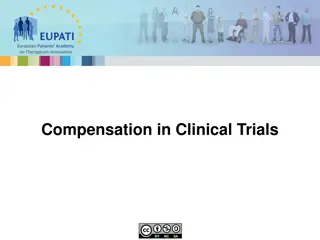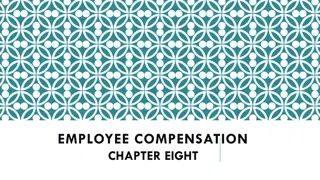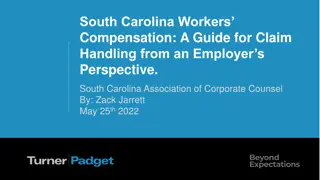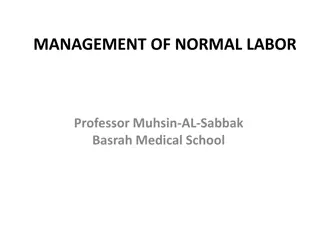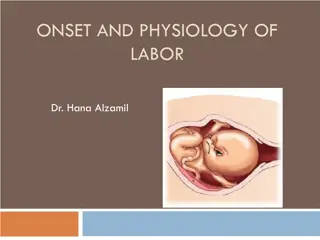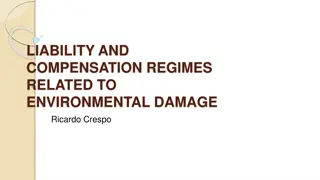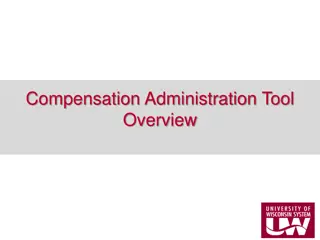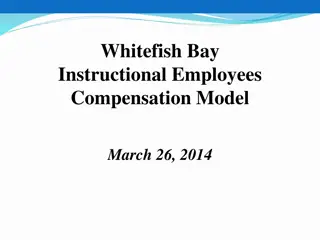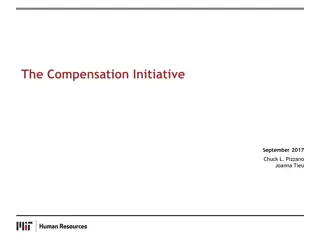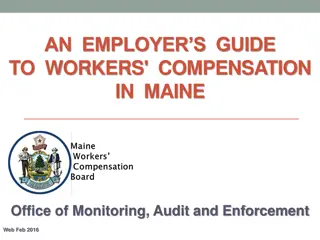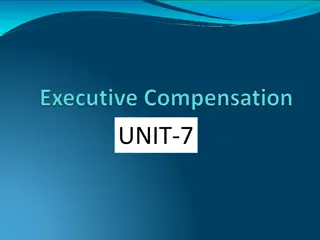Labor Compensation Realities
The evolving landscape of labor compensation through expert insights and data analysis. Uncover the shifting labor share of income, implications for workers, and perspectives from prominent figures like Sen. Elizabeth Warren and economists. Delve into the complexities of labor economics and the ongoing debate surrounding worker representation in corporate boards.
Download Presentation

Please find below an Image/Link to download the presentation.
The content on the website is provided AS IS for your information and personal use only. It may not be sold, licensed, or shared on other websites without obtaining consent from the author.If you encounter any issues during the download, it is possible that the publisher has removed the file from their server.
You are allowed to download the files provided on this website for personal or commercial use, subject to the condition that they are used lawfully. All files are the property of their respective owners.
The content on the website is provided AS IS for your information and personal use only. It may not be sold, licensed, or shared on other websites without obtaining consent from the author.
E N D
Presentation Transcript
The Global economy and the Poor Pranab Bardhan (For Dev Eco II - Hansraj College)
Globalisation and Poor Assessment of claim of Opponents of globalisation: It harms poor population: 1. Increasing globalisation affects jobs, wages and incomes of the poor by dislocations and competitions of intl trade and foreign investment 2. Weakens the ability of the state to compensate for this damage as poverty alleviation programs become restricted by international constraints.
Globalisation and Poor These two issues are examined for poor in two capacities - (a) Poor as workers As Self employed workers As wage earners (b) Poor as users of public services/common resources
Poor as self employed workers Onslaught of competition - To prepare them to withstand comp from large Agribusinesses , the State needs to relieve infrastructure + K constraints Export prospects of developing countries severely affected by developed country policies - A. Protectionism and subsidisation of farm and farm products & simple mfg goods B. Use of safety and sanitary regulations to restrict M from developing countries* MN marketing chains with global brand names can be used to mediate between domestic SS and foreign buyers, provide technical assistance and quality certification -> Role of State
Poor as self employed workers Liberalisation may increase Y but it also increases vulnerability - through increase in price or income source variability. Poor are unable to cope with such shocks.
Poor as Wage Workers Globalisation worsens conditions of workers because: A. Workers mobility + ability to retool for changing mkt conditions is ltd* -> workers stuck in declining sectors in an open economy are hurt B. Nature of technical change in developed countries biased against unskilled workers -> use of these techniques by MNCs -> wage decline and unemployment for unskilled C. Weakens collective bargaining power (labor Unions)*
What can be done? 1. Strong credible political commitment that Liberalisation must be accompanied by domestic policies to compensate losers*. 2. There can be increased income support programs and/or programs to train unemployed and to assist in securing jobs 3. Fiscally, progressive taxation can be used for redistributive policies but not heavy tax of K (possibility of K flight) 4. Pro-globalisation Intl organisation should take responsibility for funding and facilitating adjustment processes to workers 5. Strengthen technical negotiation capacity of poor countries in intl trade forums
Poor as users of Public services 1. Globalisation accompanied by Macro-economic stabilisation prescriptions particularly reducing fiscal deficit 2. Problematic in low-Y and large informal sector countries where social protection is low and basic services like health and education -> state provision 3. Political clout of rich -> govt may not want to reduce subsidies to rich etc. 4. Thus, Decrease in fiscal deficit comes in the form of reducing expenditure on basic services/social protection - adversely affects the poor. -> Per se issue isn t external agencies
Poor as users of Common resources 1. Poor countries often are exporters of primary goods -> trade liberalisation -> increasing overexploitation of environmental resources 2. Poor rely heavily on common resources for their livelihood -> trade liberalisation damages poor What can be done? Is trade restriction a solution? 1. Environmental effects of trade liberalisation depends on the crop pattern and method of production. eg - in Africa, X = capital-intensive tree crops like cocoa and import substitutes = land-intensive crop corn; Policy of M substitution may lead to greater degradation -> Case-by-Case basis assessment.
Poor as users of Common resources 2. But, Over-use of land may also be due to domestic factors - like unclearly defined property rights. -> But, to correct domestic factors -time consuming -> time-bound trade restriction may be imp given irreversibility of environmental damage while the State Overhauls domestic institutional framework 3. Can a country adopt domestic environmental Regulations? - May be difficult if competitors do not adopt them => loss of competitiveness. -> Need for coordinated environmental regulation across the board - role of intl organisation
